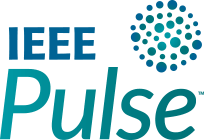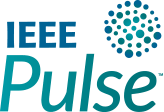But, readers of this publication are more or less conversant with medical matters: diseases, treatments, physiologies, genetics, monitoring, interventions, and many more. We are aware of means to protect and foster health, including nutrition, life styles, exercises, medicines, rest, and therapies. We probably know a lot about the details, causes, and prognoses for many common medical ailments. We may even know enough medical lingo to parse out the meaning of less-common medical terms. With all that knowledge, others around us may look to us for medical advice; if they don’t, we are often tempted to offer it anyway. Ours is a world of knowledge with importance to ourselves, our families, our friends, and our acquaintances. It is a good position to be in, with many of the benefits of a purveyor of medical knowledge without most of the responsibilities of being a medical practitioner.
I have spent some time working in a hospital, and when I walked through the halls wearing my white lab coat with my name on it and “Dr.” in front of my name, I could feel the awe and respect that are usually given to medical doctors by patients and visitors. It could have gone to my head. Although I am not, of course, knowledgeable enough in the details of the practice of medicine to assume the responsibilities that come with an M.D. degree, there is little for patients and visitors to distinguish between my hospital appearance and those of the true medical doctors who populate the hospital environs.
In daily life on the outside, I feel like I can ask somewhat probing questions about someone’s medical condition and offer opinions about possible approaches to correction of the problem. That is how it is with biomedical engineers.
I have a friend who is a Doctor of Veterinary Medicine. He routinely dabbles in human medicine, and even goes so far as to verbally prescribe medicines and supplements to alleviate physical ills of those he has informally diagnosed as having certain medical conditions. His rationale is that medical doctors are only able to treat one human species. His education, he maintains, allows him to diagnose and treat many species. And so, he is free with medical advice he gives to those with whom he comes in contact. One does not even have to discuss a medical condition with him before he issues an opinion. Sometimes we can be tempted to do the same.
Knowing as much as we do about medical matters can lead to some interesting encounters between engineer and medical practitioner. Two of these come to mind. First, I once had a research project in collaboration with a veterinarian faculty member of the University of Pennsylvania. The project involved the problem of exercise-induced pulmonary hemorrhage in race horses, which can be an important problem in the racing industry. We were locked in a conversation about what we knew about respiratory mechanics and our speculations about what was the basic cause of the condition. We each came about the problem from a completely different viewpoint. We ended up at the chalkboard in his office, each of us diagramming our explanations so that the other could, perhaps, understand what we were saying. He came at the issue from a veterinarian’s viewpoint, and I, of course, wanted to show him how an engineering analysis could lead to a solution. We talked back and forth, taking turns to explain our views, and, as we did so, shared the chalk and space on the board. It turned out that whoever of us held the chalk was in control of the discussion at that particular point. Needless to say, it was his office and his chalk, so he had the last word.
The more contentious example of an encounter between a medical doctor and a biomedical engineer occurred when I, unfortunately, needed to go to a hospital for a case of extreme dizziness. Technicians ran any number of tests, without any clear indication of the causes of the problem. When they finally did make a diagnosis, I was feeling normal, and not satisfied with their conclusions. So, when the attending physician came into my room to explain what she and others had decided, I was not happy with the diagnosis. We each questioned the other about the cause, and stated with assurance what we knew about relevant physiology and medicine. The conversation was not friendly. She eventually played the credentials card, saying, “I spent six years in medical school and have an M.D. degree,” to which I retorted, “And I am a bioengineer with a Ph.D. degree.” She then abruptly left and kept me in the hospital for an extra, quite unnecessary, night before I was able to go home.
Of course, the overwhelming majority of conversations between biomedical engineers and medical doctors, both with knowledge of medical matters, are informative, agreeable, and pleasant; these encounters can lead to better understandings for both parties. Perhaps all that the above negative examples illustrate is that a little knowledge can be a dangerous thing, but it is still good for biomedical engineers to know what we know about medical problems. We can listen to people’s medical complaints and sometimes give good advice about courses of action that should, or, at least could, be used to solve a physical ailment. We can add valued second opinions for conditions suffered by our family members, friends, and acquaintances. On the other hand, what we think and what we say do not make us equivalent to professional practitioners of the medical arts. But, it is tempting.


